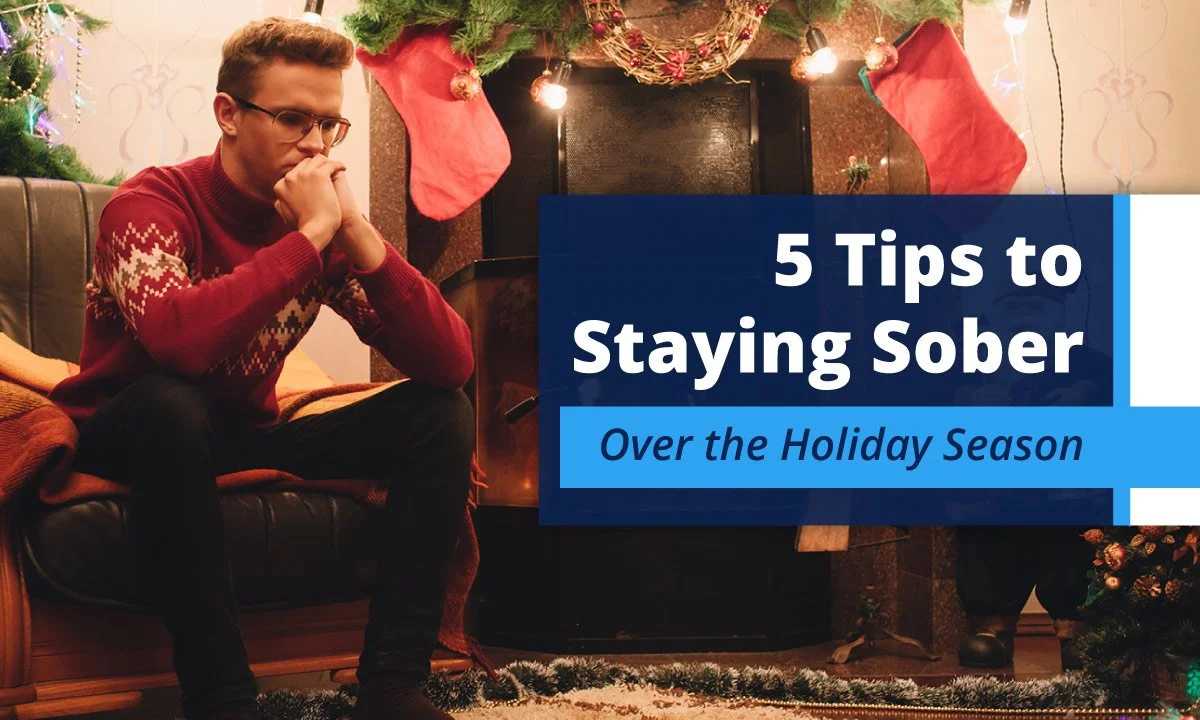

To some extent for nearly everyone, the holidays are a stressful time; plain and simple.What is supposed to be a time dedicated to family, community, and general peace and harmony quickly becomes a time of anxiety around finding the perfect gift, getting the best deal, cooking the best meal, missing family members, or even avoiding family during holidays in general. The high expectations we set for ourselves have the potential to set us up for failure right from the get-go.For those of us in recovery, we are more than well acquainted with the holiday stress and how it can threaten a bad relapse.
We might not like talking about it, but a lot of people go out to drink during the holidays. The blend of seasonal stress and the prevalence of holiday drinking and/or using around them oftentimes has the potential to trigger them into old thought patterns, and they search for an old coping mechanism.It is important to recognize these feelings, and it is equally important to remember what is at stake in your addiction recovery process.
We at Oregon Trail Recovery offer up in this article some tried and true healthy coping mechanisms that will help with staying sober during the holidays.
We cannot stress enough the importance which the community has upon someone’s recovery process. One of the most common ways that our clients have been able to recover is to become involved in a 12-Step Based Recovery Program. Within the rooms of NA and AA, the holidays are a wonderful time to be present both in mind and body. Members share their experience, strength, and hope within the regular meetings and it is not uncommon that meeting halls will host holiday events such as Thanksgiving potlucks or Christmas parties.Furthermore, on the day these exact holidays fall on, one would be able to attend marathon meetings; which are meetings that are held back to back throughout a 24-hour period. So, if you need to get to a meeting on one of these trying days, there is one available. Staying sober without AA or a similar support group makes getting through any difficult period much, much harder and increases your likelihood of relapse so we strongly encourage you to connect to a group.
While it is first and foremost the most important thing to stay clean and sober, it is also important to maintain your mental and physical health by consuming healthy foods that are rich in nutrients and exercising regularly. A morning walk can do wonders for the mind. People often like to cope with food during the holidays, which there usually is an abundance of around. Being conscious of what you are intaking and what you are putting out can be the difference between a positive and negative mindset any day of the week.Additionally, be aware of your personal triggers and patterns. Post-holiday depression might affect you more than before or on the holiday. Recognizing your patterns and preparing for them will enhance your coping abilities.
In keeping with one’s own physical and mental health, it is also important to rest on a connection of spirituality. Many find this in religious services, or brief talks with their spiritual advisor. Some find a spiritual connection with nature in a brisk winter walk through the woods or a city park. Others find this connection through an abstinence-based recovery meeting, such as AA or Refuge Recovery. Whichever avenue you choose to pursue, we urge you not to be shy from seeking it out when the holiday stress starts to become too much to bear on your own.

Essentially, understanding your surroundings can be an important tool for you to use. For instance, if you are invited to a holiday party where you know there will be drinking and drug use, understand where your vulnerabilities are and prioritize your need for safety in your recovery. It is perfectly acceptable to say no to this party. If you do find yourself going, it is important to have a support network of accountability to reach out to, either physically with you or able to be reached immediately by phone.
We can never completely understand a problem or engage others' understanding if we do not voice our concerns. Open communication is absolutely crucial. Talking about what we are going through during this time with our loved ones and what we believe we need to keep our recovery intact may offer some surprising results to us. You might be surprised by how understanding and open our loved ones are to our struggles, even if they have never been in recovery themselves.
Everyone can be subjected to being stressed during the holidays, and talking about those stressors gives us the ability to open up an avenue for which the solution can be found. Furthermore, we might find that our loved ones are not only grateful that we were open about these issues with them, they are also so grateful that we are a part of their lives again. And sometimes, to be present, in both body, mind, and spirit, is the greatest gift of all of them.
If you are looking for support this holiday season please give us a call at 855-770-0577. We would be happy to help you connect with a supportive recovery group at any of our facilities. You can also browse our addiction recovery programs online in case you are needing in-depth support for drug or alcohol addiction.We at Oregon Trail Recovery wish everyone clean, sober, and Happy Holidays.Have a holiday coping strategy that we missed? Tell us about it in the comments section below.– J. Dalton Williams BA | Oregon Trail Recovery